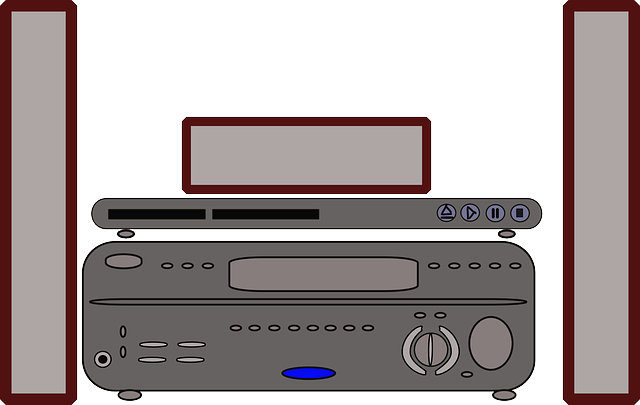Most people want a good sound system for their home theater. This is because it is the most important part of the entertainment system in their home. The most important thing to consider when buying a theatre power manager (or any other electronic device) is its power consumption. A power management system should be able to provide enough juice to run your TV, stereo and other electronics without too much hassle or stress on your electrical supply. The best option is to buy something that can handle up to four channels of audio, two channels of video and three or four lights at once with no problems at all. If you are planning on using your home theater for gaming, then you may need more power than what the average consumer needs. When choosing a theatre power manager, make sure that it has enough juice so that you don’t have to worry about getting your equipment fried. If you are looking for a power management system that can run appliances and other devices in an optimal fashion, then you should consider a home theater system with integrated power management. These systems usually include a battery backup unit that will automatically shut down whatever is plugged into it if the power goes out.
Which Home Theater Power Management System to Choose?
The Home Theater Power Management System (HTPM) is a system designed for the purpose of optimizing home theater power manager. It can be used to control different components in a home theater, such as the TV, Blu-ray player, DVD player, and sound system.
HTPMs can be used in two ways: In most cases, HTPMs are integrated with other components of a home theater. For example, they can be used to control the audio system or set-top box or video projector. In some cases they may be connected to an external power source through standard wall outlets or USB ports.
The HTPM’s main features are: The HTPM is able to monitor and regulate power consumption of various components in a home theater system, such as: Many different types of HTPMs exist. Some examples include the Power Saving HTPMs “High Performance” and “High Performance Plus”. These are about twice as powerful as typical HTPMs. The High Performance Plus available from Avalonic includes an RGB LED to indicate system status and can monitor the main power sources, the components connected to them, whether the power is on or off, and how much total current is being consumed. The HTPMs can also be used for different applications than those commonly used by most HTPMs. For example, some HTPMs are designed to maximize audio performance when a set of headphones is connected to the HTPM. As a result, the devices can be turned off completely when not needed instead of running in a power-saving mode that consumes more power and wastes electricity.

How to Select The Best Home Theater System for Your Needs?
Home theater systems are the center of attraction for most people. They provide the best experience to listeners and viewers. It is important to choose a system that can deliver the best sound quality, a good picture and an immersive feel. In selecting a home theater speaker system is to understand what you need it for.
There are three categories of home theater speakers:
Primary Home Theater Speaker. This is the audio component that will be seen by the viewer and heard by him/her. The speakers are generally placed on a mounting surface close to the viewers head, i.e., rear wall or side of a theater seat, so that he/she can hear what go through them.
Secondary Home Theater Speaker. The second category of speakers is those that go behind the primary speakers, usually placed in a recessed position. These are generally used when a center seat or wall mounted installation is not possible and it is desired that all sound should come from one location. Secondary speakers are also used for home theater speaker systems in office and residential applications. They provide good sound to casual listening but not to those who sit in front of them.
Third Home Theater Speaker. These are the speakers used when there is a need for high quality sound, such as a small group of persons speaking an executive level or scientific report. They are used in large lecture-type rooms where the sound cannot be heard by everybody at once, but needs to be understood by every listener in order to know what was said .
The fourth category of speakers are used for room-filling speakers. They fill the entire room with sound and make it difficult to concentrate on the speaker or their words, or even see what is going on. On hearing most of these “room-filling” speakers, I wonder why people buy them in the first place. Well, because they do not cost much.
Home Theater Power Management is a Big Problem for People Who Own Anything from Tablets to Gaming Systems
With the rise of smartphones, tablets and consoles, we can’t avoid the power management problems. For example, if you have a tablet and you are playing a game on it, there is no way to shut it down without turning off your battery.
A home theater power manager system would be able to shut down the device automatically when there is no need for it anymore. This would help people save money on their electricity bills as well as protect their devices from being damaged by overheating.
Why Your Home Theatre Needs an Energy Saving System for Convenience?
If you want to make your home theatre more energy efficient, you need to install an energy saving system. This is a common question that comes up in almost all of our homes. In this article, we will discuss the pros and cons of different energy saving systems and give some tips on how to choose the right one for you. Here are some things that you need to think about before making the decision: size of your living room (if you have a large living room then it may be better to go for an extensive energy saving system) the amount of energy used by your home theatre, if compared to the rest of your house the type of entertainment system that you have the heating and cooling needs of your home, and the kind of furniture and equipment in your home.
Do you have a large living room? Then it may be better to go for an extensive energy saving system. Whether you have a small living room or a huge one, installing an extensive energy saving system is important. A wide range of energy saving systems are available for you to choose from the options.
Find an Affordable & Professional Home Theater Speaker Systems that Fit Your Needs Today!




